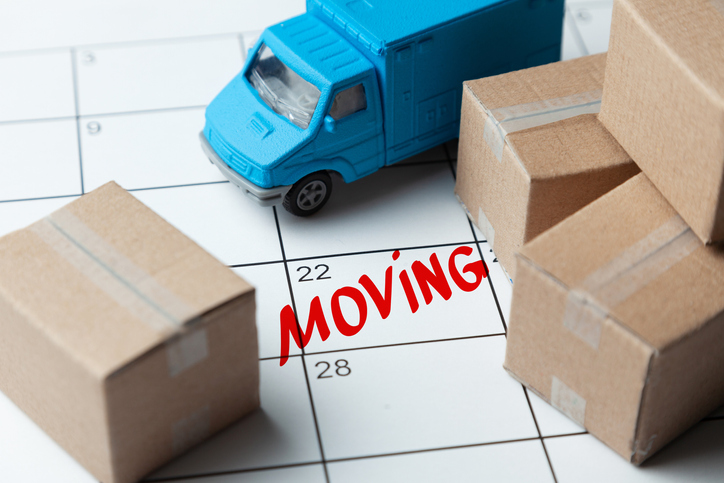The digital landscape is rapidly transforming, and businesses in the transportation, moving, and storage industries must adapt to stay competitive. Here, we delve into 13 effective digital advertising strategies companies can employ to enhance online visibility, boost customer engagement, and increase revenue.
1. Optimize Your Website: Local Search Engine Management (SEO)
Search Engine Optimization (SEO) is a cornerstone strategy in the digital landscape. It’s not just about keyword placement; it’s about strategically positioning your brand in front of potential customers. To illustrate, consider a local moving company in Seattle. By optimizing their website with location-specific keywords like “Seattle moving services” and creating informative blog content on topics like “Moving Tips in the Pacific Northwest,” they can significantly improve their visibility on search engine results pages. This, in turn, attracts individuals actively seeking their services and helps build credibility. Moreover, utilizing long-tail keywords specific to the industry, such as “Climate-Controlled Storage Solutions for Fragile Items,” can draw in highly targeted traffic looking for storage solutions, resulting in a higher conversion rate. Marketers should use this strategy by consistently researching relevant keywords, monitoring website performance, and adapting their SEO tactics to evolving search engine algorithms for optimal results.
The success of SEO for transportation, moving, and storage companies hinges on staying ahead of the competition and adapting to ever-changing search trends. Real-time tracking and adjustments are essential, which can be achieved through tools like Google Analytics and Search Console. Additionally, implementing a well-structured website with user-friendly navigation and mobile optimization is paramount for an improved user experience. For instance, when a prospective customer searching for “cross-country moving companies” clicks on a website that loads quickly and provides easy access to detailed information on services and pricing, they are more likely to engage with the brand. SEO doesn’t stop at on-page elements; off-page tactics such as link-building can’t be overlooked. Collaboration with relevant industry influencers and guest posting on authoritative blogs can enhance backlink profiles, boost domain authority, and increase organic search traffic. This hands-on, multi-faceted approach to SEO keeps transportation, moving, and storage companies at the forefront of the digital advertising game.
2. Incorporate Lower Funnel Traffic: Pay-Per-Click Advertising (PPC)
Pay-per-click (PPC) advertising is a high-impact strategy that transportation, moving, and storage companies should have in their digital advertising arsenal. It allows businesses to bid for ad placement on search engines and other platforms, with the advantage of only paying when users click on their ads. A well-crafted PPC campaign can effectively promote limited-time offers or seasonal services. For instance, if your moving company runs a summer special for long-distance relocations, you can create a PPC campaign targeting users searching for phrases like “affordable long-distance movers” or “summer moving deals.” By doing so, you reach potential customers actively seeking your services and have the flexibility to adjust your budget and targeting parameters in real-time based on campaign performance.
Let’s consider a real-life example: A storage company looking to increase its local visibility can employ hyper-targeted PPC advertising. By bidding on location-specific keywords such as “climate-controlled storage in [City Name],” they can connect with users in their immediate vicinity searching for storage solutions. Additionally, location and callout extensions can enhance ad visibility and provide essential information to potential customers, such as operating hours or special features. PPC advertising empowers transportation, moving, and storage companies to reach their audience precisely when they need their services. It is essential to drive immediate results and remain competitive in the digital landscape.
3. Amplify Your Voice Above The Competition: Paid & Boosted Social Media Advertising
Paid and boosted social media advertising is one of the most dynamic and effective strategies for transportation, moving, and storage companies. In the digital age, social media platforms provide a goldmine for reaching potential customers, and paid advertising amplifies your voice in this crowded space. Take, for example, a local moving company that wants to expand its reach. By crafting engaging ad campaigns on platforms like Facebook or Instagram, they can target users in their service area, promoting special offers or sharing moving tips. These visually appealing ads can grab the attention of users scrolling through their feeds, driving engagement and ultimately leading to new customers.
Furthermore, boosted posts on social media platforms can help these businesses reach a wider audience. Consider a storage company sharing a blog post on “Maximizing Space in Your Storage Unit.” By boosting this post, they can ensure it reaches their current followers and a broader demographic interested in storage solutions. This cost-effective strategy educates the audience and positions the company as a thought leader in the industry. For marketers, the ever-evolving algorithms and targeting options on social media make it an exciting and engaging field to explore in the quest for a broader customer base.
Incorporating Informative Content:
Companies should infuse their content with informative and engaging material to make the most of paid and boosted social media advertising, transportation, moving, and storage. Posting how-to videos on safely packing fragile items, sharing infographics about efficient moving techniques, or providing checklists for stress-free moves can all add value to the audience’s experience. These businesses attract attention and build trust and credibility by presenting this educational content within their ad campaigns. This informative approach can engage users deeper, fostering a sense of loyalty and positioning the company as a go-to resource for their target market. As marketers embrace this strategy, they tap into the powerful fusion of paid social advertising and informative content, delivering results that drive engagement and convert leads into long-term customers.
4. Nurtue Your Audience: Email Marketing Automation
An effective email marketing campaign can nurture leads, keep your brand in customers’ minds, and trigger repeat business. Platforms like MailChimp, HubSpot Marketing, and SalesForce offer marketers a range of tools to craft compelling email campaigns. These platforms allow you to segment your audience, making sending tailored messages to different customer groups easier. For transportation and moving companies, this means the ability to provide highly relevant information, whether it’s about packing tips, moving checklists, or storage solutions. Email marketing isn’t just about blasting your subscribers with promotions; it’s a platform for delivering valuable content that keeps your audience engaged.
Creating Compelling Content and Engagement:
The success of your email marketing strategy hinges on crafting informative and engaging content. For transportation and storage companies, this could include guides on selecting the right moving services, tips for a smooth relocation, or even updates on industry trends. Beyond one-time promotions, these informative emails build trust and position your brand as a valuable resource. Interactive content, such as quizzes to help users estimate their moving needs, can boost engagement. Moreover, personalization is vital in email marketing; addressing your subscribers by their name and tailoring your messages to their interests can significantly enhance the impact of your campaigns. By mastering these strategies, transportation, moving, and storage companies can create email marketing campaigns that resonate with their audience and drive business growth.
5. Establish Connection and Authority: Content Marketing
Speaking of content, let’s talk about the importance of content marketing. A well-crafted content marketing strategy can help you establish your company as an industry expert and provide valuable information to potential clients. Platforms like blogs, social media, and video channels offer a rich landscape for content dissemination. For instance, maintaining an active blog on your website improves your SEO and lets you publish informative articles on topics like “Top 10 Tips for a Smooth Move” or “Choosing the Right Storage Solution.” These resources inform and engage prospective clients and showcase your expertise. Social media platforms like Facebook and Instagram offer opportunities to share visually appealing content, such as before-and-after photos of successful moves or quick tips for efficient packing. Additionally, video content on platforms like YouTube or TikTok can provide how-to guides, customer testimonials, and even behind-the-scenes glimpses into your operations. Content marketing provides an avenue for storytelling, and sharing success stories of clients who experienced a hassle-free move with your company can be both informative and inspiring.
Consider a company like Bailey’s Moving & Storage, which effectively utilizes content marketing across various platforms. Their blog is a treasure trove of advice, from packing fragile items to selecting the right storage unit size. They leverage Facebook to share captivating images of their team in action and showcase beautifully organized storage spaces. They publish engaging videos on Twitter highlighting the intricacies of different moving services, helping potential customers understand what to expect. This diverse content strategy shows Bailey’s Moving & Storage engages with its audience across multiple touchpoints, establishing trust and positioning them as a reliable choice in the industry.
In short, you can engage with your audience, create trust, and position your organization as the go-to solution in a competitive market by creating informative, entertaining, and value-driven content across various platforms.
6. Search For Mobile Optimization Opportunities
With more people using their smartphones to access the internet, mobile optimization is more critical than ever for transportation, moving, and storage companies. With many potential customers using smartphones to access information and services, ensuring your website and advertising campaigns are mobile-friendly is imperative. First and foremost, focus on responsive web design, which ensures your website adapts seamlessly to various screen sizes and resolutions. This enhances the user experience and positively impacts your search engine rankings, especially on platforms like Google that prioritize mobile-friendly websites.

Furthermore, embrace mobile-specific advertising strategies to engage your audience effectively. Platforms like Facebook and Google Ads offer mobile-specific targeting options that allow you to reach potential customers while they’re on the go. For instance, you can create mobile ad campaigns that promote your moving services to people while relocating, delivering highly relevant content in real time. Additionally, consider the power of click-to-call ads, where users can tap a button to connect with your team. Mobile optimization also extends to the speed of your website – faster loading times on mobile devices can significantly reduce bounce rates and improve your conversion rates. For example, U-Haul, a prominent player in the moving and storage industry, has invested in a mobile-responsive website and mobile-specific advertising strategies, allowing them to effectively reach customers during critical moments of their moving journey, ultimately boosting their success.
7. All Press Can Be Good Press: Online Reviews and Reputation Management
Most marketers would agree that one of the most underutilized digital advertising tools to be leveraged is online reviews. Good or bad, online reviews can significantly influence customer decisions. Utilizing platforms like Google, Yelp, Trustpilot, and specialized industry review sites is crucial. Encouraging satisfied customers to share their experiences through honest and glowing reviews can significantly boost your credibility and attract new clients. Reputation management strategies should focus on generating positive reviews and promptly addressing any negative feedback. Responding professionally and proactively to customer concerns demonstrates your commitment to exceptional service. For example, consider creating a review request system where happy customers are encouraged to leave reviews on platforms like Yelp. Remember, positive reviews act as digital word-of-mouth endorsements, which can be invaluable for building trust and loyalty in your target audience.
Reputation management extends beyond review platforms to encompass your entire digital presence. Ensure your website is informative, user-friendly, and updated regularly. It should highlight customer success stories and emphasize the reliability and efficiency of your services. By providing case studies or blog posts about complex moving projects successfully completed, you offer informative content that can engage potential clients. Transparency in pricing and service offerings is also essential, as it builds trust with your audience. For instance, consider creating a dedicated “Customer Testimonials” section on your website, showcasing real-life examples of how your transportation or storage solutions have benefited individuals and businesses. When approached strategically, reputation management safeguards your online image and is a powerful marketing tool in the competitive transportation and moving industry.
8. Helpful Visual Content on YouTube, TikTok, Instagram: Video Advertising
Videos can effectively present complex information in an easy-to-understand format. With the rise of video platforms like YouTube, TikTok, and Instagram, marketers in this industry can captivate their audience with engaging visual content. For instance, a moving company can create short, informative videos demonstrating efficient packing techniques or showcasing the stress-free moving process. These videos inform potential customers and humanize the brand, making it relatable and trustworthy. Additionally, paid video advertising on platforms like YouTube and Facebook offers precise targeting, allowing marketers to reach individuals actively seeking moving or storage services. The visual nature of video content makes it an ideal medium for showcasing before-and-after transformations of cluttered spaces turned into organized storage units or sharing testimonials from satisfied customers who’ve experienced a hassle-free move.
For example, U-Haul’s YouTube channel features a wide array of video content, from how-to guides on packing and moving tips to customer testimonials. Their videos offer valuable information, making them a go-to resource for people planning a move. Incorporating video advertising into your strategy can inform and engage potential customers and solidify your brand’s position as an industry leader.
Additionally, transportation, moving, and storage companies should harness the power of video advertising on social media platforms. For instance, marketers can use Instagram Stories to create short, attention-grabbing clips highlighting their services, special offers, or customer success stories. Instagram’s visual appeal perfectly showcases a well-organized storage unit’s before and after results. Similarly, TikTok’s short-form video format can creatively present quick-moving hacks or clever storage solutions, capturing the attention of younger, tech-savvy audiences. By using video on these platforms, companies can connect with a wide range of people and interact in a way that suits them best, resulting in greater brand awareness and more conversions.
9. Create Sponsored Content: Influencer Marketing
Earlier in this article, we mentioned the importance of influence with online advertising. Influencer marketing may not work for everyone, but it is definitely a strategy to consider. Leveraging the popularity and reach of influencers on platforms like Instagram, TikTok, and YouTube can be a powerful strategy. Influencers can uniquely connect with their audience personally, making them ideal advocates for your services. These influencers can create engaging content showcasing your brand, whether it’s unboxing your moving kits, a tour of your storage facilities, or a testimonial on their recent hassle-free move. For marketers, the key is to identify influencers whose values and content align with your brand’s message and engage them in collaborative campaigns.
@claaaarke had the most stress-free moving day thanks to @Roadway.Movers 📦 use code claaaarke10 for $ off your next move! #nycvlog #nycapartment #moving ♬ Delicious – Pabzzz
An excellent example of the impact of influencer marketing in the transportation and moving industry can be seen in Roadway Moving’s TikTok influencer campaigns. Roadway Moving effectively tapped into a younger and tech-savvy audience by partnering with TikTok influencers. These influencers produced content that showcased Roadway Moving’s services and made the moving process fun and relatable. These campaigns’ success underlines influencer marketing’s potential to connect with a broad and engaged audience. The next time someone attempts to strategize their move, your company could be at the top of their minds. Our experts recommend that marketers should look into aligned collaborations with influencers to create authentic connections and expand their reach within this industry.
10. Reconnect With Potential Clientele: Retargeting Campaigns
Retargeting, or remarketing, is a digital advertising strategy with immense potential for any industry. The idea is simple yet incredibly effective: target users who have previously visited your website but didn’t take the desired action. Platforms like Google Ads and Facebook (Meta) Ads offer powerful retargeting options. By placing a pixel on your website, you can track these lost opportunities and re-engage them with tailored ads.
The retargeting strategy is particularly valuable because it targets users who have already been interested in your services. Marketers in this industry can create specific ad content to address common concerns, such as cost estimates or safety measures. Through strategic retargeting, you can remind potential customers of your brand’s value and encourage them to return and convert. Whether it’s a family planning a move or a business seeking storage solutions, retargeting campaigns keep your business top-of-mind during their decision-making process.
To make the most of retargeting, continually refine your ad creatives and ad scheduling. Use data analytics to understand user behavior and segment your audience for more personalized campaigns. In this ever-evolving digital landscape, retargeting campaigns are a fundamental component of a comprehensive digital marketing strategy for the transportation, moving, and storage sectors. Engage with this strategy, and watch as it converts lost prospects into loyal customers.
11. Meet Your Audience Where They’re At: Native Advertising (In-Feed Ads)
Native advertising has gained substantial traction over the years. This strategy offers a unique and effective way for transportation, moving, and storage companies to connect with their target audience. Native ads are designed to seamlessly blend in with the platform content on which they appear, providing a non-disruptive and engaging user experience. This approach is not entirely new; it has been around for a while. Consider advertorials in magazines or sponsored content in newspapers – these are early forms of native advertising.
 However, in a more recent digital era, native advertising is integrated into various online platforms, such as social media feeds, news websites, and content recommendation engines. By matching the look and feel of the platform they appear on, native ads can capture users’ attention. For example, on social media platforms like Facebook and Instagram, sponsored posts that resemble regular content are excellent examples of native advertising. These seamlessly integrated ads can inform and entertain, providing valuable information to potential customers while subtly promoting a brand or service.
However, in a more recent digital era, native advertising is integrated into various online platforms, such as social media feeds, news websites, and content recommendation engines. By matching the look and feel of the platform they appear on, native ads can capture users’ attention. For example, on social media platforms like Facebook and Instagram, sponsored posts that resemble regular content are excellent examples of native advertising. These seamlessly integrated ads can inform and entertain, providing valuable information to potential customers while subtly promoting a brand or service.
Marketers can harness the power of native advertising by crafting informative but engaging content that resonates with their target audience. Whether creating captivating video ads or social media posts, the goal is to provide valuable information while subtly promoting their services. By using native advertising, transportation, moving, and storage, companies can offer a smooth user experience and widen their reach.
12. Boost Your Campaign’s ROI: Programmatic Display Advertising
I must say it: programmatic advertising is one of Propellant Media’s more sought-after digital advertising strategies. And there is a reason why! This data-driven approach streamlines the buying process by automating the purchasing of ads and leveraging real-time data to target specific audiences. In essence, programmatic advertising allows marketers to reach the right people with the right message at the right time, ensuring that ad spending is maximized for optimal results.
One key aspect of programmatic display advertising for transportation and moving companies is the ability to harness granular audience targeting. For instance, a long-distance moving company can use programmatic advertising to target users who have recently searched for terms like “relocation services” or “cross-country movers.” This laser-focused approach ensures that your ads are displayed to potential customers actively seeking your services. Additionally, programmatic advertising allows for retargeting, enabling you to re-engage users who have previously visited your website but didn’t convert. Presenting them with relevant ads increases the chances of conversion and ultimately boosts your ROI.
A real-world example of programmatic display advertising success in the industry is a storage company effectively targeting college students during the summer break. By utilizing programmatic advertising to serve ads on platforms frequented by this demographic, such as social media and educational websites, the storage company can capture students’ attention needing short-term storage solutions. The result is an efficient use of the advertising budget with higher conversion rates, as the ads directly reach the audience most likely to engage with the service. In a competitive market, programmatic display advertising becomes a powerful tool for transportation, moving, and storage companies to stand out and drive results.
13. Enhance The Customer Journey: Conversion Rate Optimization (CRO)
Last but not least, Conversion Rate Optimization (CRO) emerges as a powerful strategy for marketers in the transportation, moving, and storage industry. CRO is not just about driving more traffic to your website; it’s about ensuring that a significant portion of that traffic takes the desired action, such as filling out a quote request form or booking your services. At its core, CRO is the art and science of making your website more effective in turning visitors into customers.
To embark on a successful CRO journey, begin by analyzing user behavior and identifying bottlenecks in your conversion funnel. For example, if you notice a high bounce rate on your quote request page, it might be time to reevaluate its design and content. A/B testing is another potent CRO tool. Test different elements of your website, like button colors, form fields, or call-to-action (CTA) text. The goal is to identify what resonates best with your audience and drives more conversions. For instance, you might test two versions of your CTA button text – “Get a Quote” and “Request Pricing” to see which one yields a higher conversion rate.
CRO extends beyond your website design; it encompasses the entire customer journey. Ensure your ads align with the landing pages they lead to, offering a consistent user experience. When crafting your ad copy, consider including strong, specific value propositions and incentives, such as “Free Moving Consultation” or “10% Off Storage Services.” These persuasive messages can lead to higher click-through rates and, in turn, increased conversions. CRO is an ongoing process of fine-tuning every aspect of your digital presence to guide visitors seamlessly toward becoming paying customers. With the right strategies and a data-driven approach, CRO can help you maximize your digital advertising efforts.
Conclusion
In conclusion, the potential for digital advertising to transform the fortunes of transportation, moving, and storage companies is undeniable. With many strategies at your disposal, from SEO and PPC to social media advertising and CRO, these techniques can propel your business to new heights in an increasingly competitive market. The ever-evolving digital landscape presents an incredible opportunity to reach a wider audience, establish your brand’s authority, and generate quality leads. With the right digital advertising approach, you can not only stay ahead of the curve but also provide exceptional value and convenience to your customers, ensuring their loyalty and trust.
Propellant Media stands ready to be your trusted partner on this journey. Our expertise in digital advertising and our deep understanding of the unique challenges and opportunities within the transportation, moving, and storage industry make us your ideal ally. With Propellant Media, you can focus on efficiently running your business while we expertly manage your website, lead generation, and digital advertising efforts. We are committed to helping you navigate the complexities of the digital world, ensuring your brand’s presence is visible and impactful. So, as you prepare to elevate your business in the digital era, remember that Propellant Media is here to provide the essential support and expertise you need for success.


